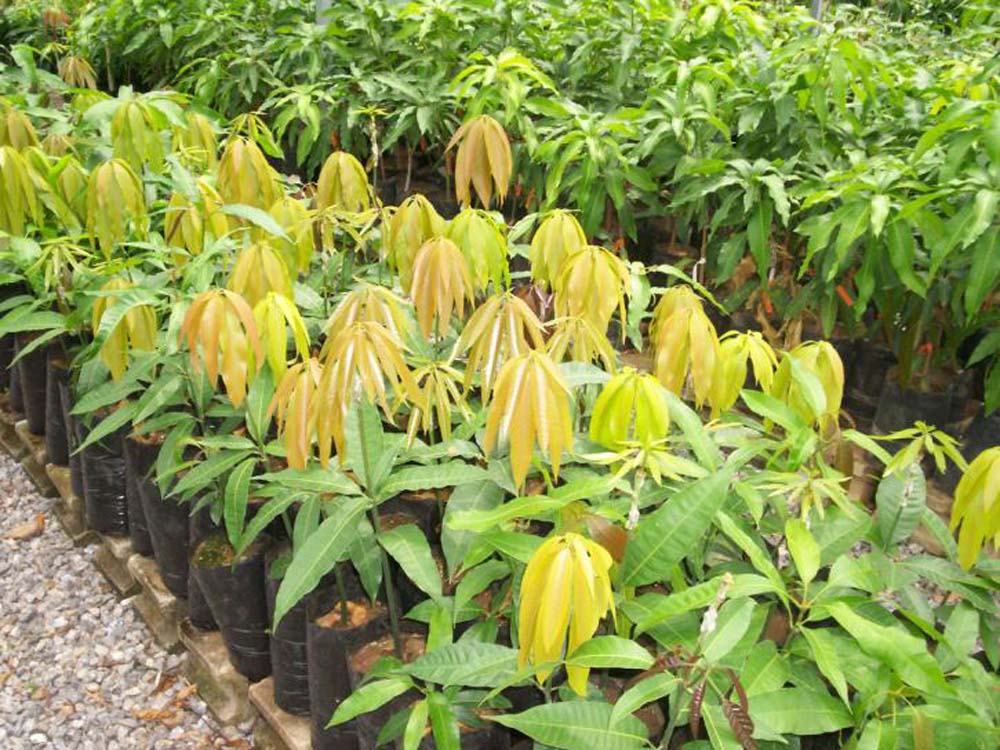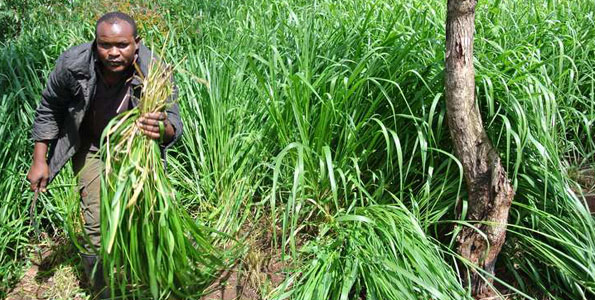
A Siaya County banker is earning Sh83, 000 a month from her side-hustle which involves raising different fruit seedlings and selling them for Sh120 to Sh200.
Sellah Awino Migaya first started out as a poultry farmer in 2016, rearing kuroiler and indigenous variety of chicken, which earned her Sh150, 000 net per month she then ventured into fruit nursey seedlings farming in June 2017 as another way of earning her extra income.
RELATED ARTICLE: Organic folia feed stops premature falling of flowers and fruits
“I am impressed with the way my poultry business is doing, this has motivated me into starting a fruit nursery in order to diversify my source of income,” said the Bondo Sub-county farmer.
“I noticed people love fruits very much after observing how traders in the area market would run out of stock. This was an opportunity to produce seedlings for farmers within the area so that they can produce more fruits to save traders from hustling for the fruits from far.”
With a starting capital of about Sh5000, Awino bought some few seedlings from the Kenya Agricultural & Livestock Research Organization (KALRO) branch in Kisumu while the rest she ordered from a fruit farm in Thika.
RELATED ARTICLE: Pawpaw gives 40 fruits per tree
Some of the fruit seedlings that she nurtures in her nursery, which is set few metres from River Yala, include solo sunrise pawpaw, grafted yellow passion, pepino melon, Washington navel variety of oranges and South African variety of oranges among other seedlings.
Between November and December last year she sold seedlings worth Sh83, 000 and was surprised by how the fruit nursery business had picked up in just six months.
“I had about 237 mature seedlings and by mid-December last year and I sold all of them,” she said.
Awino, who is now doing the restocking of her nursery, sells solo sunrise pawpaw seedlings at Sh120 each, grafted yellow passion seedlings at Sh200 each, orange seedlings at Sh160 each.
RELATED ARTICLE: Beauty foods create expanding global market for fruits
“Farmers like planting the Washington navel oranges because consumers prefer them as they are sweet oranges, large, seedless and have a rich, juicy flavor that is delicious for eating out of hand,” she said.
To ensure she produces clean seedlings free from pests and diseases, Awino incorporates the production process experts from KALRO and Kenya Plant Health Inspectorate Service (KEPHIS).
Write comment (0 Comments)


















